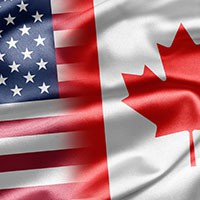Last updated: July 10 2014
Non-Residents Owning U.S. Real Estate

What exactly do Canadians need to know about owning U.S. real estate?
More and more Canadians are purchasing U.S. real estate for personal and/or rental use. It's important to understand how different ownership options lead to different tax consequences.
Case Study
Jerry is a Canadian resident and citizen who purchased a condo in Phoenix, Arizona, on July 15, 2013 for $125,000. Jerry’s plan has always been to rent it out on a short-term basis for the entire year, with the exception of 3 weeks in the month of August, when he will use it personally. After a few minor repairs, Jerry had the condo ready for renters by August 1, 2013; however, he didn’t actually have anyone interested to rent the condo until January 2014.
Questions and Answers:
What is Jerry’s filing requirement in the U.S. for 2013?
Because Jerry’s intention is to rent the property, even though he doesn’t have any renters until 2014, he must report the purchase of the condo and take depreciation for the 2013 tax year; therefore, he must file a 1040NR return.
Does it make a difference if Jerry plans to use the condo solely for personal purposes instead of renting it?
If he uses the property solely for personal use then he has no filing requirement in the U.S. until he sells it.
In what country(ies) does Jerry need to report his rental income and expenses?
The U.S. rental income and expenses must be reported in both the U.S. and Canada. In the U.S. because the property is located in the U.S., and in Canada because Jerry is a Canadian resident and is subject to tax on a worldwide income basis.
To learn more about non-residents owning U.S. real estate, pick up a copy of Canadians & The IRS, by Angela Preteau – available in the Knowledge Bureau bookstore.
Excerpted from Canadians & The IRS. © Knowledge Bureau, Inc. All rights reserved.
